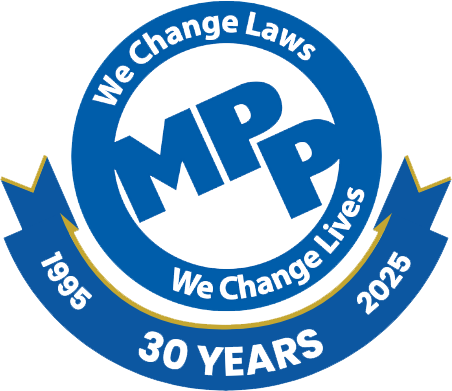On April 16, 2014 then-Gov. Scott Walker signed into law A.B. 726, a bill that exempts individuals with seizure disorders from criminal penalties for using and possessing cannabidiol (CBD), a component found in marijuana. The exception applies only if the CBD has no psychoactive effect and if the patient’s physician has given him or her written approval. In 2017, he signed Act 4, which expanded the law to include patients with any medical condition.
The laws allow physicians or pharmacies to dispense CBD to patients with epilepsy only if they have been approved to do so by the FDA or if CBD is rescheduled under the federal Controlled Substances Act. The FDA has only approved a single prescription drug — Epidiolex. However, industrial hemp laws may provide a means of in-state access to CBD products.
Limitations: It is not entirely clear what types of marijuana the law allows. Wisconsin law generally criminalizes the possession of THC, and this law creates an exception from the definition for certain patients who possess “cannabidiol in a form without a psychoactive effect.” It is unclear if cannabis extracts with trace amounts of THC are covered. It definitely does not protect patients using strains of marijuana that contain enough THC — which also has therapeutic benefits — to produce a “high.”
Qualified patients cannot grow their own non-psychoactive strains of marijuana for purposes of obtaining cannabidiol. The law only allows individuals with seizure disorders to possess — not cultivate — cannabidiol in a form that is not psychoactive.
Qualifying patients: As amended in 2017, any individual with a letter from their physician may use and possess cannabidiol.
Access: The law allows physicians and pharmacies that have been issued an investigational drug permit by the FDA to dispense CBD. In the event that the federal government removes CBD from the Controlled Substances Act, Wisconsin will approve pharmacies and physicians to dispense it.
Nonetheless, Wisconsin patients are still exempt for possessing CBD so long as their physicians have issued them a written certificate stating they use the CBD to treat their condition. However, there is no reliable, tested source of CBD in Wisconsin. Theoretically, the law allows a Wisconsin patient to travel to another state — such as Illinois or Michigan — to obtain the CBD from those states’ dispensaries and bring it back to Wisconsin. However, that would be a costly and extremely burdensome way to obtain medicine. In addition, there are a number of “CBD” products available online or in stores, but these products are typically lightly regulated, without the kind of testing required in medical cannabis programs. Unfortunately, some products do not actually contain the amount of CBD on the label — or any at all — or they may also contain THC, heavy metals, or dangerous other ingredients.[1]
Notably, in late 2017, Wisconsin’s legislature enacted a pilot program to license industrial hemp production, which seemed to provide a potential means of access. In 2019, the legislature and governor approved Act 68, which will transition Wisconsin’s pilot hemp program to the type of permanent regulatory structure authorized by the federal 2018 Farm Bill. A summary is available here.
[1] See https://www.sltrib.com/news/2018/05/25/cdc-urges-states-to-regulate-cbd-oil-after-52-people-got-sick-off-phony-products-sold-in-utah/
